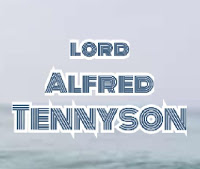The Love Song of J. Alfred Prufrock-Summary and analysis
 |
| The Love Song of J. Alfred Prufrock .. Summary & analysis |
The popular poem 'The Love Song of J. Alfred Prufrock' is a great literary work of T.S.Eliot. It was first published in 1915. It is in the form of an interior monologue in which a person expresses his inner thoughts and feelings. the speaker and the listener are the same people in this poem. The poet describes the love of Alfred Prufrock who loves a young beautiful lady in this poem. This poem is a love song of a man who loves a lady very much and wants to propose her for marriage but every time he becomes nervous before proposing her. Therefore for this purpose, he wants to go to a tea party on the eve of 1st October but he becomes disappointed very soon because he has not done any special work in his life.
He is not a rich person because he has wasted his time in useless works. Therefore he is very sad. He thinks that the lady may reject him. He thinks himself like Polonius who appears in a few scenes of play but at the end, he decides not to propose the young lady. The poem is full of high imagination and sensuous word pictures. Eliot has used impressive language in the poem. The poem is also a remarkable use of symbolism and imagery. Through this poem, the poet tries to express the weaknesses of the people of modern society in an impressive way.
The Love Song of J. Alfred Prufrock -Poem analysis..... stanza wise
Stanza--1
The poem is a love song of Alfred Prufrock who loves a young beautiful lady and wants to propose her but he was in fear that she may reject him. He is going to a tea party to propose the lady to marry but suddenly a negative thought comes in his mind that the lady may reject him for his past useless activities. Because he has wasted his previous time in the company of prostitutes. Therefore he quits the idea of proposing her. But he is very disappointed. Through this poem, the poet throws tight on the weaknesses of modern men in an impressive way.
Stanza--2
The poem is the masterpiece of Eliot. The poet describes the fear of Prufrock in this stanza. Prufrock is sad because he thinks that the woman whom he loves may reject his proposal because of his growing age. He is not young and strong now to impress her. So lady may reject his proposal of marriage. Then suddenly he sees that beautiful lady going to the next room. Prufrock listens to her talking carefully. She is talking about a famous man named Michelangelo. He is a famous sculptor who is very popular for his art of making nude statues of people. After it, he thinks about the mist and smoke of the evening. Both are looking golden yellow in colour. The yellow smoke is spreading slowly in the evening. After it, he thinks about the smoke of chimneys that disappears from his sight. Because this smoke of chimneys disappears in a curl. Therefore Prufrock is very sad to think that the lady may not accept his proposal in this type of atmosphere and he is not very young and strong now.
Stanza--3
In the third stanza, the poet describes the mental condition of Prufrock. when he sees the beautiful lady going in the room, Profrock thinks that he should have patience. The decisions of this kind are not taken in a hurry. So he should wait for the right moment. He compares the act of proposing the lady to the task of murder. For him proposing a lady is not easy. He thinks that he should think about this matter may times. After all, it is a matter of proposing a beautiful young lady for marriage. As he does not take even tea without thinking then this is a more important task than tea. He says that everything happens at the right time. So he should wait.
Stanza--4
Here in this stanza, he describes the fear of Prufrock at the time of proposal. Prufrock is confused about it whether the lady will accept him or not. He sees the lady talking about Michelangelo who is famous for making nude statues of a human. So Prufrock thinks that the lady who is talking about this topic will be erotic. And now he is growing old and weak. His hair has also become grey and having a bald spot in the middle of his head. He looks old and weak now. Therefore the lady will not accept him because of his old age and weakness. So he leaves the idea of the proposal.
Stanza--5
In this stanza, Prufrock thinks to hide his weakness and old age with a costly and beautiful dress. For it, he put on a morning coat that covers his neck and wears a nice tie. He wants to impress the lady with his smart look. Still, he is in fear that the lady may know about his old age and weak body. He says whether he can hide his old age and weak body. It seems to him like disturbing the universe. That's why he leaves the idea of proposing the lady.
Stanza--6
In this stanza, Prufrock says that he knows very well this kind of ladies. They change their lovers very fast. They change their lovers rapidly with a change of time like morning, afternoon, and evening. After it, Prufrock thinks that he also has spent his time in the useless activities. Therefore he is in doubt whether he should propose or not.
Stanza--7
This poem is a satire on the modern man and woman who spend their lives in useless activities. After it, Prufrock thinks that the ladies of this kind do not have true love for an aged man like him. He wants to express his love for the lady but at the same time, he is in fear whether she will accept him or not. He wants to promise his beloved to be a nice person in future and he will not do trivial activities. But he is not an expert in speaking with the ladies impressively. So he hesitates to talk with the lady.
Stanza--8
Prufrock expresses his feelings that he likes ladies covered in a shawl. He does not like those ladies who look pretty and show off their beauty wearing small dresses. In fact, he thinks himself inferior to other men.
Stanza--9
Prufrock thinks himself too weak to express his love for the lady. So he decides to take tea and snacks so that he could gather some courage to take the right decision. But again Prufrock thinks about the anger of the lady. So he does not propose her.
Stanza--10
In this stanza, Prufrock decides not to propose the lady. He thinks it useless work. Now he does not want to waste his time for the lady. It seems him as difficult as squeezing the universe into a ball. So he quit the idea of proposing the lady.
Stanza--11
Now Prufrock has changed his mind. He is not interested in useless things like love. He thinks that he should not waste his time in useless activities. Besides it, he can use his time in reading a book, going in the parties and other important works.
Stanza--12
He thinks himself a coward man who has not the courage to propose a lady. He thinks himself inferior to Prince Hamlet who is the hero of the play of Shakespeare.
Stanza--13
Now Prufrock thinks that he is not too young to propose the beautiful lady. He has grown old now and can not hide his signs of old age like weak body and baldness. But he wants to look younger. He says that he wants to wear nice dresses not to impress ladies but for his satisfaction. He wants to enjoy his life without any worry of proposing the lady. Still, he may enjoy his life to look at other beautiful girls and feel happy.
Thus the poem "The Love Song of J. Alfred Prufrock " is the love song of a lover who does not propose the lady at the end. This poem is a remarkable work of T.S.Eliot in the field of English Literature.






















